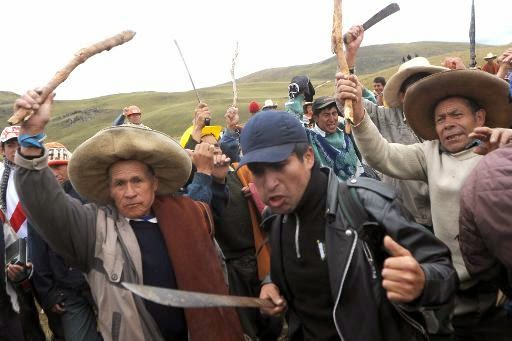Irena Sendler
Died: May 12, 2008 (aged 98)
Warsaw , Poland
During WWII, Irena, got permission to work in the Warsaw ghetto, as a Plumbing/Sewer specialist. She had an ulterior motive. Irena smuggled Jewish infants out in the bottom of the tool box she carried. She also carried a burlap sack in the back of her truck, for larger kids.
Irena kept a dog in the back that she trained to bark when the Nazi soldiers let her in and out of the ghetto. The soldiers, of course, wanted nothing to do with the dog and the barking covered the children and infants' noises.
During her time of doing this, she managed to smuggle out and save 2500 children and infants.
Ultimately, she was caught, however, and the Nazis broke both of her legs and arms and beat her severely.
Irena kept a record of the names of all the kids she had smuggled out in a glass jar that she buried under a tree in her back yard. After the war, she tried to locate any parents that may have survived
and tried to reunite the family. Most had been gassed.
Those kids she helped got placed into foster family homes or adopted.
In 2007 Irena was up for the Nobel Peace Prize.
She was not selected.
Al Gore won, for a slide show on Global Warming. Later another politician, Barack Obama, won for simply being the first black president of the US. After all, what is saving 2500 children's lives at enormous personal risk compared to a slide show. I've made slide shows, I know how difficult it is. Good grief! Gore should have refused the prize so a real hero could be honoured.
It is now more than 65 years since the Second World War in Europe ended. This blog post is in memory of the 6 million Jews, 20 million Russians, 10 million Christians, and 1,900 Catholic priests who were murdered, massacred.
Now, more than ever, with Iran, and others, claiming the Holocaust to be 'a myth', it’s imperative to make sure the world never forgets, because there are others who would like to do it again.
 |
| Irena Sendlar, one of the great heroes of WWII |
Warsaw , Poland
During WWII, Irena, got permission to work in the Warsaw ghetto, as a Plumbing/Sewer specialist. She had an ulterior motive. Irena smuggled Jewish infants out in the bottom of the tool box she carried. She also carried a burlap sack in the back of her truck, for larger kids.
Irena kept a dog in the back that she trained to bark when the Nazi soldiers let her in and out of the ghetto. The soldiers, of course, wanted nothing to do with the dog and the barking covered the children and infants' noises.
During her time of doing this, she managed to smuggle out and save 2500 children and infants.
Ultimately, she was caught, however, and the Nazis broke both of her legs and arms and beat her severely.
Irena kept a record of the names of all the kids she had smuggled out in a glass jar that she buried under a tree in her back yard. After the war, she tried to locate any parents that may have survived
and tried to reunite the family. Most had been gassed.
Those kids she helped got placed into foster family homes or adopted.
In 2007 Irena was up for the Nobel Peace Prize.
She was not selected.
Al Gore won, for a slide show on Global Warming. Later another politician, Barack Obama, won for simply being the first black president of the US. After all, what is saving 2500 children's lives at enormous personal risk compared to a slide show. I've made slide shows, I know how difficult it is. Good grief! Gore should have refused the prize so a real hero could be honoured.
It is now more than 65 years since the Second World War in Europe ended. This blog post is in memory of the 6 million Jews, 20 million Russians, 10 million Christians, and 1,900 Catholic priests who were murdered, massacred.
Now, more than ever, with Iran, and others, claiming the Holocaust to be 'a myth', it’s imperative to make sure the world never forgets, because there are others who would like to do it again.



















